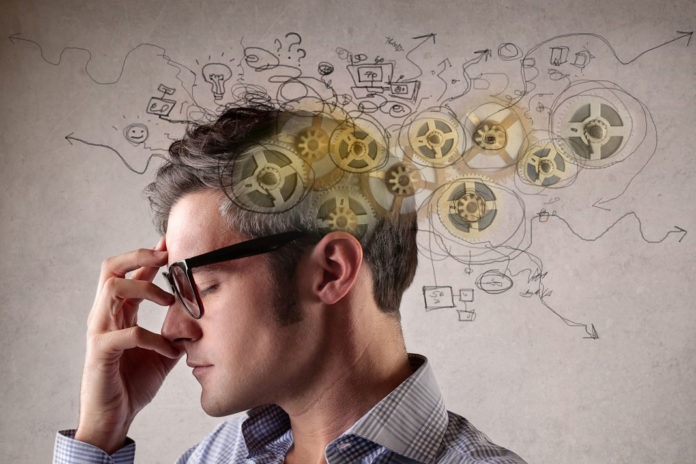In its many forms, addiction casts a shadow over countless lives, presenting challenges that often feel insurmountable. The journey to recovery is rewarding. However, it isn’t without its hurdles. The path forward may seem lined with uncertainties and emotional pitfalls for those battling addiction. Yet, with the right tools and strategies, maintaining mental balance after getting better is feasible and empowering.
This article aims to guide individuals through the complexities of sustaining this mental equilibrium after achieving sobriety. For many, understanding the post-recovery challenges is the first step, followed closely by recognizing the profound role of mental health in ensuring lasting rehabilitation. By embracing knowledge and action, one can navigate this chapter of life with renewed confidence and purpose.
Understanding The Challenges Post-Recovery
Recovery from addiction is a monumental achievement, a beacon of hope and strength. Yet the aftermath often unveils a new set of challenges, each demanding unique strategies for navigation. Individuals must anticipate these hurdles to avoid getting caught off guard.
- Psychological impact: After the initial thrill of overcoming addiction, it’s not uncommon for individuals to experience emotional ebbs and flows. Episodes of anxiety, stress, or sadness might punctuate moments of joy. This dynamic landscape is a natural part of healing, but recognizing it is crucial for continued well-being.
- Social dynamics: Reintegrating into society, and even into close-knit communities of family and friends, can feel like treading unfamiliar territory. Mending relationships is essential, and rebuilding broken trust takes time and dedication. Additionally, there’s the challenge of avoiding environments or acquaintances that might act as triggers, reminding individuals of their past.
- Potential relapse: One of the most formidable challenges after getting back on one’s feet is the looming shadow of relapse. The environment, past experiences, and unexpected stressors can catalyze old habits or feelings. Staying vigilant, informed, and equipped with coping mechanisms can be the armor against such vulnerabilities.
In understanding these challenges, individuals can better prepare themselves for the journey ahead, turning potential stumbling blocks into stepping stones toward a fulfilling life free from addiction.
Recognizing The Role Of Mental Health In Sustained Recovery
Mental health stands at the core of long-term recovery. Beyond physical detoxification, understanding and nurturing one’s mental well-being can make the difference between temporary abstinence and genuine, enduring recovery.
- Self-awareness and reflection: Taking time to introspect and become more self-aware can play a pivotal role in recovery. Recognizing personal strengths, understanding vulnerabilities, and identifying signs of emotional distress can help individuals better manage their responses and seek timely intervention when needed.
- Prioritizing mental health check-ins: Just as regular medical checkups are essential for physical health, periodic mental health evaluations play a crucial role in sustained recovery. These assessments help in the early detection of any emerging issues, ensuring that individuals remain on a steady path to mental well-being and are not inadvertently slipping back into old patterns.
- Integrated treatment for addiction and mental health: Addiction often intertwines with depression and anxiety. These disorders can either precede or result from addiction. Recognizing and addressing both addiction and any co-existing mental health conditions is crucial. Considering both facets, an integrated approach is essential for a stable foundation and sustained well-being.
- Positive mental health as a relapse deterrent: A sound mind is one of the best defenses against relapse. Cultivating mental resilience, honing coping mechanisms, and seeking support when needed can be instrumental. Mental health, after all, is not just about the absence of illness but the presence of positive attributes, such as clarity, resilience, and emotional balance.
In the mosaic of recovery, mental health emerges as a central piece. By prioritizing their mental well-being, individuals fortify themselves against challenges and amplify their potential for a brighter, addiction-free future.
Strategies For Maintaining Mental Balance
Achieving sobriety is only one part of the recovery equation. To ensure lasting success, maintaining mental balance becomes a day-to-day endeavor. Here are several strategies that individuals can adopt to foster mental equilibrium and fortify their path to enduring recovery.
- Mindfulness and meditation: Rooting oneself in the present moment can be transformative. Through mindfulness exercises or meditation sessions, individuals can develop a deeper awareness of their emotions, thoughts, and surroundings. This heightened consciousness can aid in managing stress and keeping negative thoughts at bay.
- Physical wellness: A sound body often nurtures a sound mind. Regular physical activity—whether a brisk walk, yoga, or more strenuous exercises—can release endorphins, the body’s natural mood enhancers. This approach promotes physical and mental vigor with a balanced, nutrient-rich diet.
- Establishing a support network: Journeying through recovery with the support of loved ones, peers, or dedicated groups can make a difference. By sharing experiences, challenges, and triumphs, individuals can find solace and strength in communal resilience.
- Routine and structure: Crafting a structured daily routine provides a sense of purpose and direction. Individuals can cultivate balance and reduce the uncertainties that might provoke stress by allocating time for self-care, work, and leisure.
- Developing healthy coping mechanisms: Life will invariably present stressors and challenges. Preparing with a repertoire of healthy coping mechanisms—like reading, journaling, or engaging in hobbies—can help divert the mind from potential triggers and offer a therapeutic outlet.
Maintaining mental balance after recovery is a journey of continuous self-awareness, adjustment, and growth. By leveraging these strategies and being proactive in mental care, individuals can optimize their chances of sustained recovery and an enriched quality of life.
The Role Of Lifelong Learning In Recovery
Recovery is more than a destination; it’s an evolving voyage that demands adaptability, growth, and continuous learning. Embracing a mindset of lifelong learning equips individuals with knowledge, skills, and perspectives that can enrich their recovery experience and sustain their progress.
- Continuous education on addiction and mental health: As science and research advance, new insights emerge about addiction, mental health, and recovery. Keeping informed about these developments can offer individuals fresh perspectives, tools, and strategies to incorporate into their recovery journey, making it more robust and adaptive.
- Adopting a growth mindset: Life is filled with challenges and setbacks. When individuals adopt a growth mindset and view challenges as opportunities to grow, they become more resilient and persistent. This mindset encourages a proactive approach to recovery, focusing on constant self-improvement and adaptability.
- Participation in recovery communities: Engaging with recovery communities—whether through group meetings, online forums, or workshops—offers a dual benefit. It allows individuals to remain updated with new recovery strategies and fosters a sense of belonging. Shared experiences, stories, and mutual encouragement in these communities can be invaluable anchors in healing.
- Personal and professional development: Expanding horizons through education, professional courses, or hobbies can instill a sense of purpose and achievement. Such endeavors divert attention from potential triggers and imbue life with a richness that further distances the allure of past addictions.
Lifelong learning emphasizes the importance of evolving, adapting, and growing throughout recovery. By perpetually seeking knowledge and new experiences, individuals strengthen their recovery foundation and enhance the overall quality of their lives.
Final Thoughts
A person’s journey toward sustained recovery and mental balance showcases their strength and evolution. Each step they take radiates hope. It’s important to know that they don’t have to be alone in the journey to recovery; this reassurance can be a beacon for others on a similar path.
Sharing their stories transforms the recovery process into a collective wellspring of inspiration. In times when the weight of the journey is overwhelming, it’s essential to remember there’s strength in seeking support and reaching out for help.














